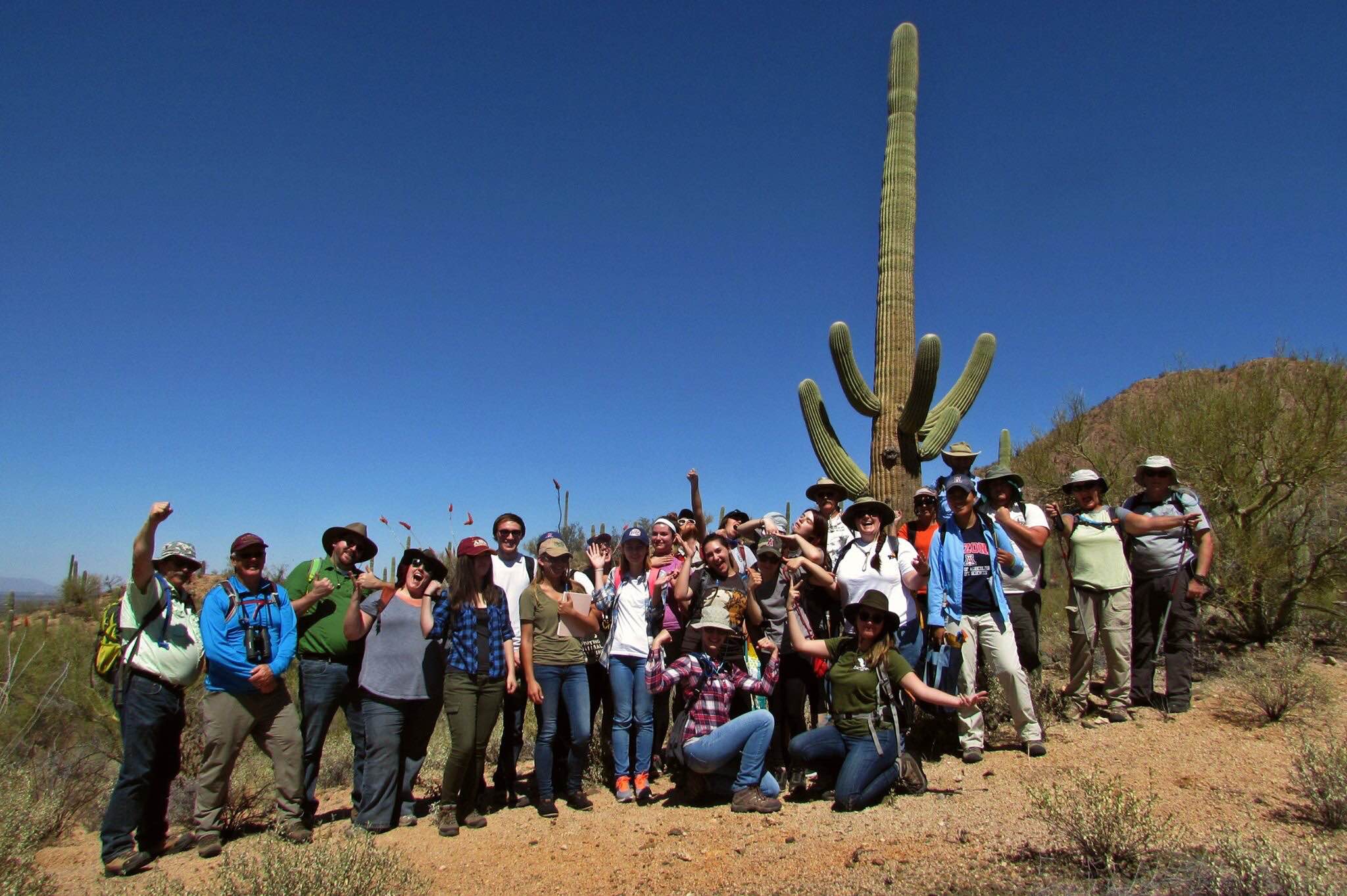A world of possibilities
Conservation biology students launch Nature@ASU club to show others the path to range of career options out in the field
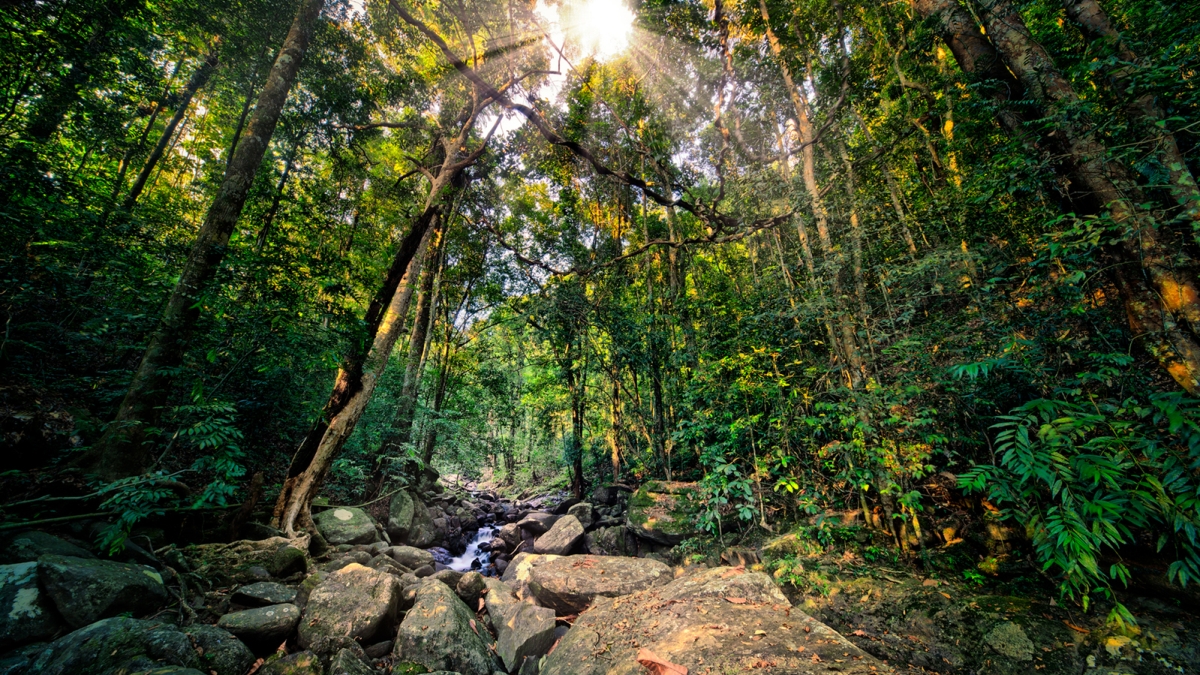
Inspecting the teeth of a drugged Siberian tiger. Darting a tracking device in a whale from the deck of a pitching boat. Waking up in a tent to sunrise over the Tibetan steppe.
There are careers where you can do all these things, and be paid for it.
A group of conservation biology students at Arizona State University want to shout this to the high heavens. To that end, they are starting a club to focus on professional development for conservation biologists.
Nature@ASU, slated to officially launch next fall, will have five components: a mentorship program; an internship finder; a job-mining component; high school outreach; and a website.
“We all care about protecting our planet,” said Jessica Givens, Nature@ASU co-founder along with John Lebens.
Givens’ experience is a classic example of what she wants to change. In high school she always liked animals and biology classes. When she arrived at ASU, she was pre-med student. But when classes like biochemistry loomed, she thought, “I don’t know if I want to do this.”
She had no idea what she wanted to do. What she really wanted to do was be a force for change in the natural world. “I have this big feely thing where I want to protect the world,” she said.
A meeting with conservation biologist Andrew Smith, President's Professor and Parents' Association Professor in the School of Life SciencesThe School of Life Sciences is an academic unit of the College of Liberal Arts and Sciences. Smith is also a distinguished sustainability scientist in the Julie Ann Wrigley Global Institute of Sustainability, a guest professor in the College of Life Sciences/Center for Landscape Ecology and Sustainability Science at Beijing Normal University, and advisory board member for the Center for Biodiversity Outcomes, part of the Julie Ann Wrigley Global Institute of Sustainability., where he showed her his work and research, clinched the deal. She discovered what she wanted to do with her life.
“A lot of people are interested in conservation biology, but they don’t hear about it until they’re juniors or seniors,” Lebens said.
“We need to show students this is a viable (career) option,” Givens said.
She switched her major to a bachelor's in conservation biology and ecology, became president of the Central Arizona Chapter of the Society for Conservation Biology — a student-run, conservation-biology organization centered at ASU — and quadrupled its membership in less than a year. The chapter jumped into fieldwork, doing a jackrabbit survey, spotlighting black-footed ferret, and trapping prairie dogs.
“I’ve taken a lot of people out and they’re like, ‘This is my first sleeping bag,’” Givens said. “That’s what makes students great conservationists: being out there.”
A group of volunteers, including ASU students, completed a recent cactus survey at Saguaro National Park outside Tucson. Photo courtesy: ASU alum Carolyn Harper
About 167 students are studying conservation biology at ASU, mostly juniors and seniors. The subject ranges across the university: conservation biology and sustainability in Tempe; environmental science at the West campus; and applied biosciences at the Polytechnic campus.
Givens and Lebens recruited 16 undergrads to help with the launch of Nature@ASU. They want to elevate the club to the point where organizations like the Arizona Game and Fish Department and the Nature Conservancy call for project volunteers or internship candidates.
Ecosystem scientist Sharon Hall, associate professor in the School of Life SciencesHall is also a senior sustainability scientist in the Julie Ann Wrigley Global Institute of Sustainability and associate director of education and diversity in the Center for Biodiversity Outcomes., will be Nature@ASU’s faculty adviser.
Hall said students going into the field need more of a hand than in other careers. Conservation biology is not like a law degree, where grads can expect to clerk after graduation.
“There’s a lot of pathways you can choose from, but they’re not very clear,” Hall said, citing the need to show a range of jobs.
There are two other groups who need education about the field. Parents are one. They may feel that a college degree is limited to business or law, and not understand that a good career can be had under mosquito netting as well as wood paneling. That’s why the outreach component of Nature@ASU is important.
“Make the pathways to conservation science very clear, and take it to parents and to high schools,” Hall said.
The other is kids that haven’t spent any time in nature and don’t know that they can do what they see on Animal Planet for a living.
“You have to have some exposure to nature to know what to expect,” Hall said. “It can be scary for kids who don’t have that background. They’re faced with how do I get a job? How do I make a living?”
Givens envisions Nature@ASU moving to other universities. “What we need most is mentors,” she said. “Hopefully we get the stars to align.”
“What they need is to find and support each other,” Hall said. “If you’re interested in nature, we’ll help you choose. ... It’ll be student-driven. That’s the key thing.”
Top photo by Andreas Krappweis/Freeimages.com
More Science and technology
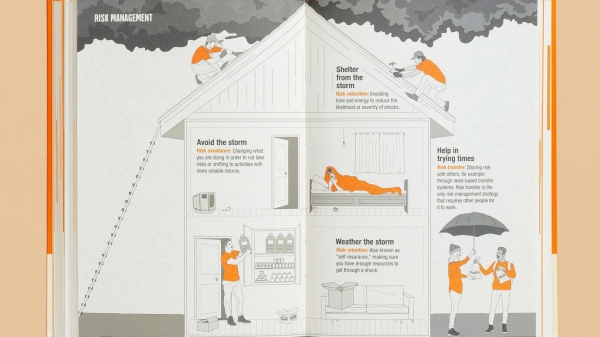
ASU author puts the fun in preparing for the apocalypse
The idea of an apocalypse was once only the stuff of science fiction — like in “Dawn of the Dead” or “I Am Legend.” However these days, amid escalating global conflicts and the prospect of a nuclear…
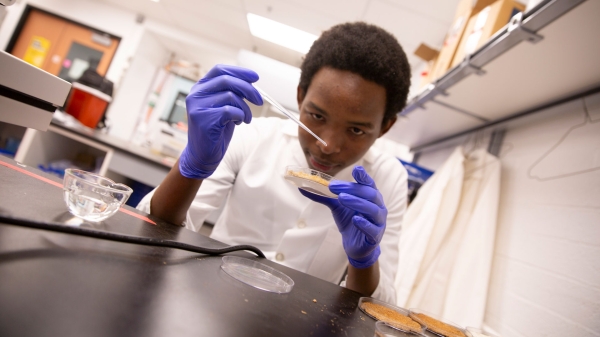
Meet student researchers solving real-world challenges
Developing sustainable solar energy solutions, deploying fungi to support soils affected by wildfire, making space education more accessible and using machine learning for semiconductor material…
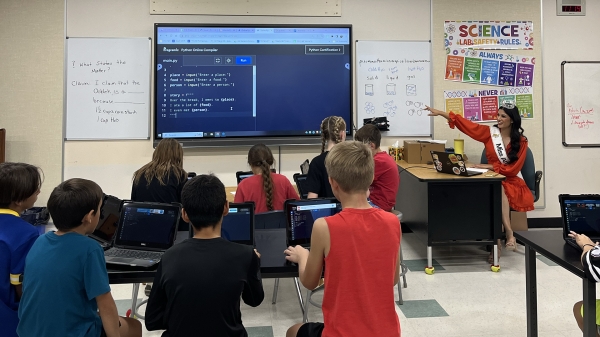
Miss Arizona, computer science major wants to inspire children to combine code and creativity
Editor’s note: This story is part of a series of profiles of notable spring 2024 graduates. “It’s bittersweet.” That’s how Tiffany Ticlo describes reaching this milestone. In May, she will graduate…
